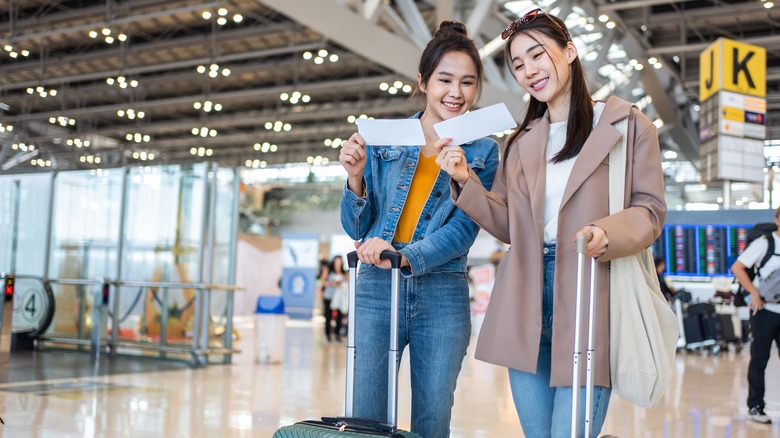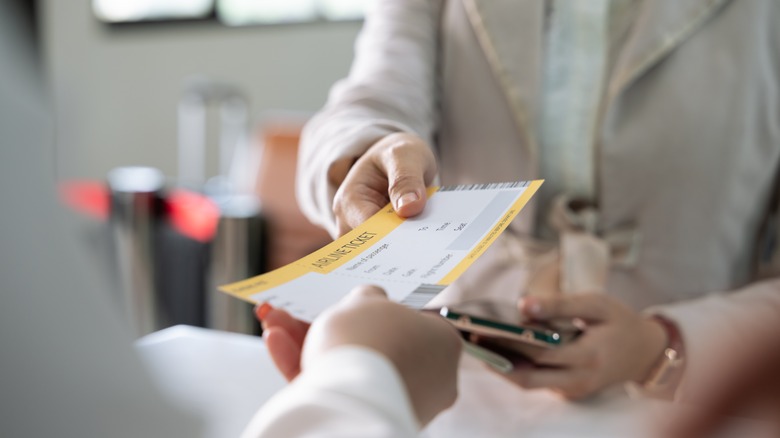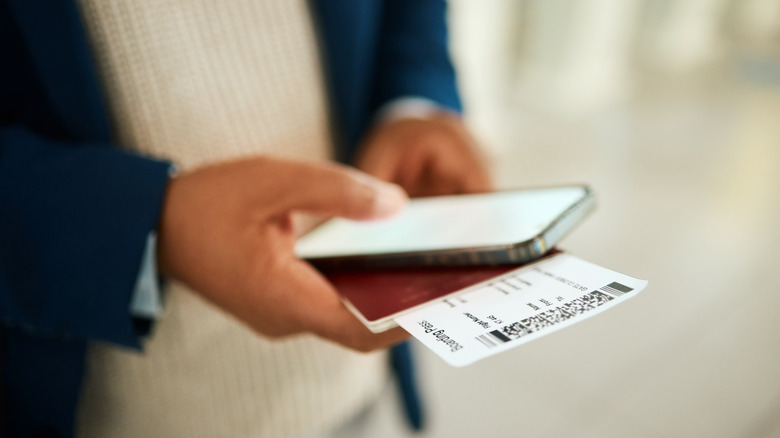Here's Why The Sequence Number On Your Boarding Pass May Be More Important Than You Think
You may not pay much attention to your boarding pass beyond your gate number and seat assignment. Lots of people don't, but if you look closely at it, there is a lot you can find out about your flight. For instance, if the codes S/0 and SPTC appear on your boarding pass, it has to do with stopovers you have between flights, and the FQTV code means a frequent flier program is involved. You might find a note about seeing an agent as well. One code you might not recognize is SEQ with a number after it. That one indicates your "sequence" or where you fall numerically in terms of check-in order. For example, if the number is SEQ/017, it means you were the 17th person to check in.
While your stopovers and frequent flier status are unlikely to mess with your flight very often, the SEQ code can sometimes affect your seating, when you board, and if you can board at all in some rare circumstances. Knowing what this code means can help you understand what's happening, why, and when you might be owed compensation. Here's what you need to know about the SEQ code on your boarding pass.
How your SEQ number can affect your flight
While there are a number of U.S. airports where you don't need to show your boarding pass anymore, there are still plenty where you do. For most flights, it's no big deal to have a high SEQ number, meaning you've checked in later than everyone else. However, if you happen to fly on an airline that assigns you a boarding order based on check-in order (like Southwest, for instance), a lower number means a better chance of getting a row and seat that works for you. Higher numbers may end up stuck in a middle seat. While there isn't much you can do in those circumstances (besides checking in earlier next time), knowing before the flight boards means you have time to get a travel pillow. That way your head doesn't fall on the shoulders of the people on either side of you while you nap.
Another time your SEQ number can matter is when your flight is overbooked. Airlines are legally allowed to oversell seats to compensate for no-shows or cancellations, according to the Department of Transportation (DOT). (In rare circumstances, a seat may be needed for a Federal Air Marshal.) If no one volunteers to take another flight, the last people to board can be bumped off the plane. If you're wondering how many people can fit on that particular plane, you can always ask the gate agent for the number of seats and if it's full.
What if your SEQ number gets you bumped from a flight?
As we said, a high SEQ can get you bumped off a flight if no one volunteers to take a new flight in exchange for compensation. It's pretty rare for this to happen, but it can. The DOT states that the airline has to ask for volunteers first. In exchange for giving up your seat, you'll be rebooked on another flight, with other compensation like a voucher for future travel, or even money. They recommend you ask first about where and when you'd be rebooked, warning that if you're put on standby for another flight, you could get stuck again. You should also ask about meals, hotel rooms, travel to and from a hotel, and a phone card if you're going to be stuck for a long time.
If you're bumped anyway because you checked in late (bumping can also be based on things like frequent flier status and what you paid for the flight in the first place), you have rights. Airlines are required to give you a written statement of those rights. You must be compensated for the inconvenience if your reservation was confirmed, you check-in on time, you get to the gate on time, and if they can't get you to your destination in a one-hour window of your original arrival time. "Denied boarding compensation" or "DBC" is based on ticket price, delay time, and whether it's domestic or international. The DOT website has a table of what you are legally owed.


